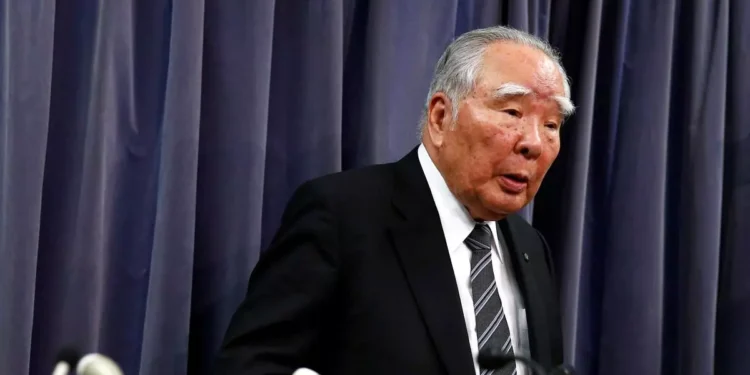Osamu Suzuki, the former Chairman of Suzuki Motor Corporation, is a name that resonates with success and innovation in the Indian automotive industry. His visionary decision to partner with the Indian government in 1981 to form the joint venture Maruti Udyog Ltd has been hailed as a game-changer that spurred the growth of the automotive industry in India.
At the time, India’s automotive industry was in its nascent stage, with only a handful of manufacturers and a limited domestic market. The entry of Suzuki, one of the world’s leading automobile companies, marked a significant turning point for the industry. It not only brought advanced technology and expertise but also opened doors to new possibilities and opportunities.
Under the leadership of Osamu Suzuki, Maruti Udyog Ltd quickly established itself as a market leader, capturing a significant share of the Indian market. The company’s first car, the iconic Maruti 800, became an instant hit and revolutionized the Indian automobile market. Its affordable price, fuel efficiency, and low maintenance costs made it a popular choice among the Indian middle class, who were previously deprived of owning a car.
But Osamu Suzuki’s contribution to the Indian automotive industry goes beyond just the success of Maruti Udyog Ltd. He was instrumental in introducing the concept of small, compact cars in India, which perfectly suited the needs and preferences of the Indian consumers. This led to the development of other successful models like the Maruti Alto, Wagon R, and Swift, which continue to dominate the Indian market even today.
Suzuki’s partnership with the Indian government also played a crucial role in the growth of the industry. The joint venture brought in much-needed investments, technology, and employment opportunities, which not only benefited Maruti Udyog Ltd but also had a ripple effect on the entire automotive ecosystem in India. It led to the development of a robust supplier network, the establishment of new manufacturing plants, and the creation of thousands of jobs.
Moreover, Osamu Suzuki’s focus on localization and indigenization helped Maruti Udyog Ltd to become a truly Indian company. The majority of the components used in their cars were produced locally, which not only reduced costs but also contributed to the growth of the Indian manufacturing sector. This, in turn, helped in the development of a self-reliant and self-sufficient automotive industry in India.
Osamu Suzuki’s contribution to the Indian automotive industry has been recognized and appreciated by many. In 2007, he was awarded the Padma Bhushan, one of India’s highest civilian honors, for his outstanding contribution to the Indian automobile sector. He was also awarded the Nikkei Asia Prize in 2008 for his pioneering role in developing the Indian automotive industry.
Today, Maruti Suzuki India Limited, as it is now known, is the largest car manufacturer in India, with a market share of over 50%. It has sold over 20 million cars since its inception and continues to be the first choice for Indian car buyers. The success of Maruti Suzuki has also attracted other global players to enter the Indian market, making it one of the most competitive and dynamic automotive markets in the world.
In conclusion, Osamu Suzuki’s decision to partner with the Indian government in 1981 has had a profound impact on the Indian automotive industry. His vision, leadership, and innovative approach have not only made Maruti Suzuki a household name in India but also spurred the growth and development of the entire industry. His contribution will always be remembered and celebrated as a testament to his unwavering belief in the potential of the Indian market and his commitment to driving its progress and prosperity.










